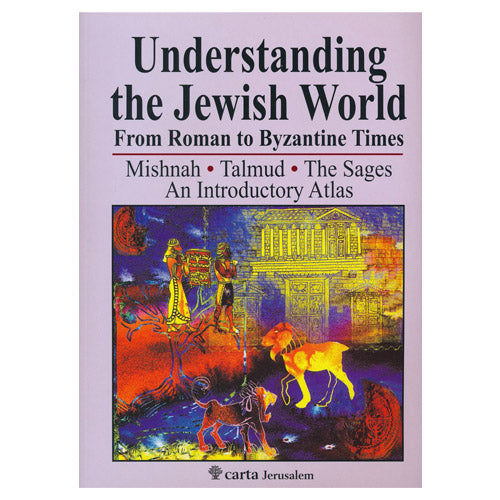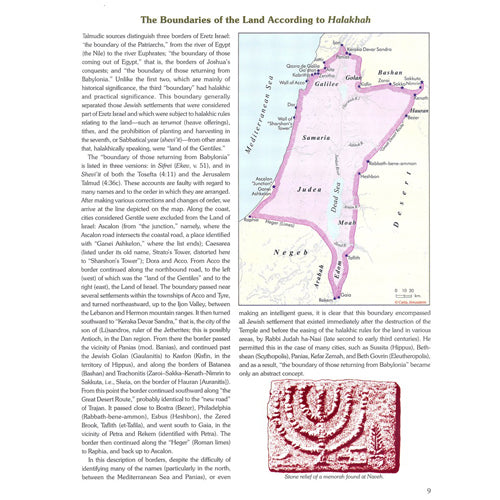Understanding The Jewish World by Carta
Understanding The Jewish World by Carta
SKU: PB402.2
Couldn't load pickup availability
Understanding the Jewish World from Roman to Byzantine Times
By Michael Avi-Yonah with Shmuel Safrai | Published by Carta Jerusalem
Step into a transformative period of Jewish history with this authoritative and accessible guide by renowned historian Michael Avi-Yonah and Shmuel Safrai. Understanding the Jewish World from Roman to Byzantine Times offers a detailed overview of Jewish life, culture, and historical developments from the Roman conquest through the rise of Byzantine rule.
Through concise, well-researched text and rich illustrations, This book explores the shifting political landscape, the evolution of Jewish religious and communal life, and the key events that shaped Jewish identity during this pivotal era. Perfect for students, educators, and history enthusiasts alike, this book distills complex historical transitions into an engaging and informative narrative.
Highlights Include:
- Insight into Jewish society under Roman and Byzantine rule
- Exploration of major events: the destruction of the Second Temple, Bar Kokhba revolt, and more
- Illustrated with maps, timelines, and historical visuals
- Authored by one of Israel’s most respected archaeologists and historians
Specifications:
- Format: Softcover
- 40 pages
- Publisher: Carta Jerusalem
- Language: English
- 9 x11.75 in. (23 x30 cm)
Contents:
- Introduction
- Aftermath of the Bar Kokhba Revolt
- Renewal of Jewish Settlements in Eretz Israel
- Eretz Israel in the Days of the Amoraim
- The Amoraim in Babylonia
- The Close of the Byzantine Period
Whether you’re delving into Jewish history for study or personal interest, Understanding the Jewish World from Roman to Byzantine Times is a valuable addition to any collection.
About the Authors: Michael Avi-Yonah (1904-74) was a Professor of Archaeology and History of Art at The Hebrew University Of Jerusalem. He wrote numerous books and papers. He planned and constructed a model of the Second Temple Jerusalem at 1:50 scale, now on display at the Israel Museum, Jerusalem. Shmuel Safrai (1919-2003), a founding member of the Jerusalem School of Synoptic Research, was an emeritus professor of Jewish History of the Mishnaic and Talmudic Period at the Hebrew University of Jerusalem. Safrai was the recipient of several literary prizes for his research and wrote over 80 articles and 12 books.
Additional Information
Additional Information
Share









